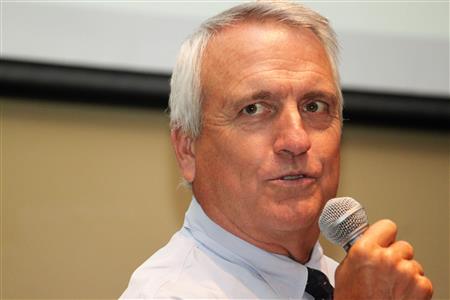Bill Ritter - America's Energy Revolution

Bill Ritter, former Colorado Governor and Director of CSU’s Center for the New Energy Economy, discussed America’s Energy Revolution and his new book, Powering Forward: What Everyone Should Know about America’s Energy Revolution. He was introduced by former Rotarian Maury Doby.
Bill’s main point was there is a tremendous amount of progress being made in using renewable energy and meeting climate change goals despite the gridlock and inaction of congress. Change in the use and mix of energy sources is being driven by state and local action, federal agencies, executive actions and corporate America! The motivation behind writing the book was to tell the story of what is happening and what federal actions could help.
The Center for New Energy Economy at CSU is a thought leader in this area and advises states and the Western Governors on energy policy. Despite the divide on the issue of climate change at the national political level, the Western Governors have been aligned for a number of years. The U.S. is on track to meet its climate change emission goals through state and regional strategies.
Cheap natural gas from fracking and the implementation of renewable energy sources has lead to the demise of the coal industry. The coal industry was a big part of the industrialization of the United States and creation of the U.S. middle class. Ritter suggested that the citizen’s of this country owe these coal mining communities the opportunity to adapt to new technologies and jobs.
Bill discussed fracking and that the best research on its environmental impact is going on at CSU and has led to good regulatory standards in Colorado. Well casing rules and enforcement are critical in minimizing water impacts. Methane capture all along the value chain is important for air quality. As communities and the oil & gas industry move up against each other, much of the impact will be the nuisance factor of noise, light and dust. Long term, natural gas is a fossil fuel and will eventually need to wind down.
Ritter concludes his book with a discussion of campaign finance. It his proposition that campaign finance is the cause of much of the gridlock in congress and especially on the issues of climate change and energy. Policy, finance and technology must work together to define the future of energy.